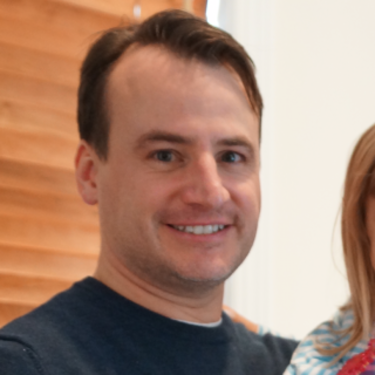Now well into my second year of general surgery training, I’d hoped by now people would accept, or at least grow accustomed to, my lifestyle. Still, my friends and family — and only out of love and affection — nudge me with questions like, “Is it worth it?” “Do you really have to work those hours?” and “Are you getting enough sleep?”
Contrary to my terse and typical answer to all of the above as “yes,” I have more nuanced answers to these questions to share.
Is it worth it?
I like to think all residents have at least once, if not many times in their training, questioned either their chosen specialty or their decision to become a doctor in the first place — I certainly have. I have been tired, sad, embarrassed, ashamed, excited, and fearful all in the time of a single call shift. I have gotten caught up in petty hospital disputes with bed management about the musical chairs of getting my older adult ED patient a floor bed with a window, and I have begged the on-call podiatry resident to cut my long-term-player patient’s toenails (at an attending's request; though podiatry doesn’t do toenails as an inpatient). I have called the OR over and over trying to move the case schedule around so a child can be NPO for less time. I (like all surgical residents) have done things that on paper have nothing to do with learning to operate.
All these “not my job” tasks made me feel the exhaustion of residency more acutely until one of my seniors reframed things for me. All these tasks are rooted in what is best for the patient, and as residents, nothing is below us if it means the best for the patient. That is why we keep doing it — we care about the window bed, the toenails, and the hungry child just as we care about operating.
All surgery residents have heard rumors and know “those people” who transferred to anesthesia — lost to the dark side of the drapes. How dare they have their coffees and lunch breaks! But in order for it to be worth it, you have to love what you do. There is no shame in switching specialties to find what you love, and if you love it, you just know it’s right.
We think of those who do not “make it” in surgery as weak and those who stay as stronger and even better than those in other specialties, but this notion — while still culturally ever-present in medicine — is dated and disrespectful. Those who change career paths or specialties are incredibly brave. They reflect on themselves and see perhaps they have wanted something different for their life and they make a change.
For me, there is no place I would rather be than the OR, where there is an immediacy to the sense of healing, an express passion for practice and learning, and where patients go at critical moments in their lives. There is nothing more special than seeing a child on post-op check after their appendectomy (maybe the one you called the OR front desk about over and over again). They are smiling and eating a Pedialyte popsicle, while just hours before they were lying in a stretcher in the ED crying, vomiting, and holding their belly in pain with their parents anxiously standing by. Now maybe they are sore and the skin glue is itchy, but they are, for all intents and purposes, better. There is nothing like it.
Do you really have to work those hours?
First, to the critics out there, I know those who came before me worked longer and harder before work-hour restrictions. I know the older guard may view the 80-hour work week as limiting in our training, and they very well may be right. But it is hard to forget the context of the 80-hour work week, especially at my hospital. When I walk through our ED — brimming with patients at all hours — I am walking through the actual place where college freshman Libby Zion died of a preventable drug-drug interaction in 1984, her death and the court case that ensued being the basis for ACGME work-hour restrictions. In the words of Libby Zion’s father, “You don't need kindergarten to know that a resident working a 36-hour shift is in no condition to make any kind of judgment call — forget about life-and-death.”
An attending that I admire deeply because she paved the way for so many women surgeons after her told me she even brought her pager to her wedding because she was on call — and stories like these abound in surgery and other fields. While surgery residents don’t work nearly as much as they used to, I have still missed many holidays, birthdays, dinners, and so forth. I have sat in bed after coming home in the middle of the night, eating only a bowl of peas before passing out and almost forgetting to feed my cat.
I am not complaining, this is just the truth. While this lifestyle may not be for everyone, I am OK with it, because we all know that no matter what, the hospital doesn’t keep 9-to-5 hours and patients don’t choose when to get “sick.” Cases in the OR frequently go past 6 p.m., and patients still need to be seen for PM rounds, and, of course, we cannot control when a trauma comes in, or when a patient needs a take-back for bleeding, or when multiple kidney transplants go overnight. We come in early to round in the mornings before our education conferences, because we are all still learners too, and we stay late talking to families. Sometimes it is a lot to ask, but mostly I wouldn’t have it any other way. I feel a great responsibility for my patients and ownership over their care. For better or for worse, I think about them when I go home, and those I’m particularly worried about, I chart check, only to the extent that my fiancé won’t complain.
Are you getting enough sleep?
I will actually keep this short. The real answer is sometimes, and black-out curtains and melatonin are a must.
It is hard for people outside of medicine to understand the day-to-day life of a resident (or anybody in medicine), but the people we have in our lives who do not understand are sometimes the most important for keeping us grounded. They make us reflect on why we do what we do and how long we spend doing it. Sometimes they care about our wellness more than we do. They ask, “is it worth it, do you really have to work those hours, and are you getting enough sleep?” because they care.
What questions are you usually asked about your career? Share in the comments.
Caitlin J. Cain is a second-year surgical resident at New York Presbyterian/Weill-Cornell Medical Center. She is an aspiring pediatric surgeon and is interested in medical humanities as a means for enhancing clinical practice. Dr. Cain is a 2022–2023 Op-Med Fellow. Follow her on twitter @joelle_caitlin.
Illustration by April Brust







